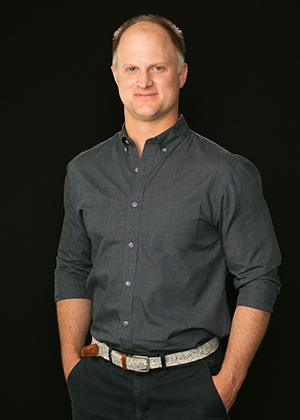Michael Nelson Excellence in Neuroscience Award
 After earning his PhD in neuroscience from the University of Virginia in 2007, Mike Nelson had a decision to make about his career path. “I was thinking, ‘Do I want to take this knowledge and continue to be a researcher and look at a post-doctoral fellowship and head down the academic path, or do I want to do something else,” he recalls.
After earning his PhD in neuroscience from the University of Virginia in 2007, Mike Nelson had a decision to make about his career path. “I was thinking, ‘Do I want to take this knowledge and continue to be a researcher and look at a post-doctoral fellowship and head down the academic path, or do I want to do something else,” he recalls.
Nelson chose “something else.” Returning to his home state of Colorado, he went to law school at the University of Denver. The reason? While he was a student at UVA doing his own research and publishing papers, he had worked with a number of patent and corporate lawyers. The experience exposed him to the technology transfer process and how it relates to research and bringing new innovations to the marketplace.
“Universities and places like that are wonderful at coming up with these new technologies. They are not as well equipped to develop them into a final product that can change people’s lives in the real world. That’s what industry is for,” Nelson says. “I thought going to law school would be a great way to use my knowledge and be involved in another part of the pathway, from an idea all the way to a commercial product that really helps patients.”
Nelson graduated from law school in 2010, working first for Foley Hoag, LLP before joining Cooley, LLP in 2015. The firm has 1,500 lawyers across 17 offices in the United States, Asia and Europe, practicing everything from corporate law to intellectual property as well as litigation. Today, Nelson is a partner at Cooley working with clients that include high tech companies like Uber as well as those in the life sciences space.
“Every day, all day, I’m working with these technologies. Probably 85% of them come out of universities. We help those companies get funded, go through clinical trials, and, hopefully, go on to become the next Genentechs of the world,” Nelson says. “It is a demanding career because being a corporate attorney requires long hours and lots of pressure, but it’s wonderful because I get to see all of these different technologies and help these companies and universities really get these exciting inventions out there into the world to help people.”
In 2022, Nelson decided to make a gift to the University of Virginia School of Medicine to show his appreciation for the career he credits largely to his graduate school experience. “I had such a wonderful time at UVA, and quite simply, I would not have had the success that I’ve had, financial and otherwise, in my career without the support I had in the Neuroscience Graduate Program at UVA,” he says. “Having achieved a level of success in my life where I’m in a position to give back to the people and institutions who have helped me along the way and create opportunities for others, the Neuroscience Graduate Program was right at the top.”
The Michael Nelson Excellence in Neuroscience Award was created with an initial gift of $50,000, with a matching amount to follow over the next five years. Nelson calls the gift “modest,” but he believes it can have a big impact. “When I was at UVA, I won the Peach Award. It had a $5,000 cash award that I could use to travel for my research and things like that. That felt like a million dollars to me at that time,” he says. Nelson plans to rename the award over the next year. “We needed a name to make the gift and I didn’t want to hold that up process, so I reluctantly agreed to my own, but I plan to re-name it in honor of an alumnus or faculty member who’s much more distinguished and deserving than myself.”
Funds from the award will be used to recognize neuroscience graduate students who demonstrate scientific merit and productivity, outstanding academic performance, and leadership. Additional funds will be used to support educational initiatives for the Neuroscience Graduate Program including visiting lectures, educational materials and technology, student travel to conferences, and diversity efforts.
In addition to directly helping current students, Nelson hopes that the award will help demonstrate how clinicians, researchers, and even attorneys are ultimately part of the same mission to improve healthcare.
“I use my scientific knowledge every single day in my practice, and I’m a corporate attorney,” Nelson says. “I hope this award raises awareness that it’s a really versatile degree and you can do really interesting things with it that are all part of the same mission.”
Make a gift to the Michael Nelson Excellence in Neuroscience Award.
